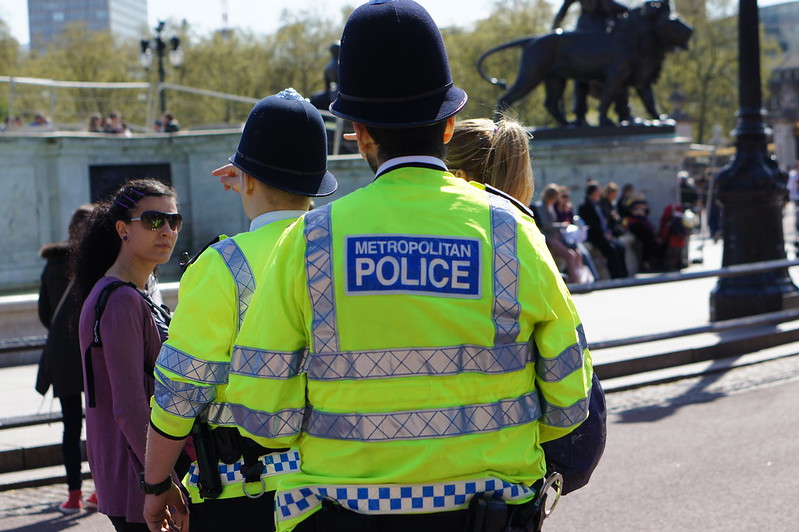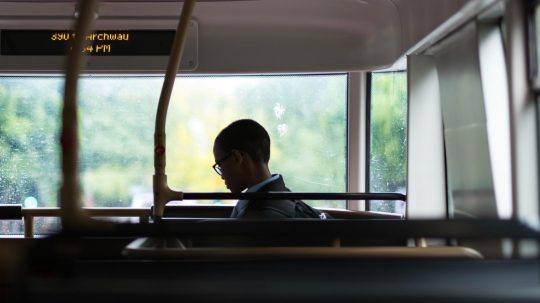Content warning: The following article is about so-called honour-based abuse and includes references to forced marriage, rape and murder.
Between March 2021 and March 2022 there were 2,887 honour-based abuse-related (HBA) offences recorded by the police in England and Wales, the second consecutive rise in HBA-related offences. Approximately seven cases are reported every day. However, the Home Office says that these cases are likely to only represent a small proportion of the actual offences committed.
In 2022, the Women and Equalities Committee launched an inquiry into so-called honour-based abuse. In the latest evidence session for the inquiry into , there were calls for the development of a definition of HBA, the creation of a centralised database and implementation of mandatory ongoing training for professionals. The inquiry itself is part of an umbrella inquiry into Preventing Violence Against Women and Girls and has also been discussed in relation to the Victims Bill.
Currently, there is not a statutory definition of so-called honour-based abuse as there is for domestic abuse and forced marriage.
Kim Johnson MP, the committee member leading the inquiry into so-called honour-based abuse, said:
“We know that the true number of offences is likely to be much higher than reported and more must be done to make sure victims feel safe enough to seek help.We want to understand more about who commits this kind of abuse and in what contexts, so that it can be better countered, and its victims better served.”
What is so called honour-based abuse?
So-called honour-based abuse is a crime or incident committed to protect or defend the honour of a family and/or community. HBA does not cover one specific crime; it generally occurs in domestic settings and can involve a range of offending behaviours which are used against individuals, families or other social groups to control and protect perceived cultural/religious beliefs and honour.
HBA may include murder, fear of or actual forced marriage, controlling sexual activity, domestic abuse and abuse (including psychological, physical, sexual, financial or emotional), child abuse, rape, kidnapping, false imprisonment, assault, harassment and forced abortion. However, this is not an exhaustive list.
Offences of so-called honour-based abuse are prosecuted under the specific offence committed, eg common assault, grievous bodily harm, harassment, kidnap, rape or murder.
It can be distinguished from other forms of violence/abuse, as it is often committed with some degree of approval and/or collusion from family and/or community members. Women, men and younger members of the family can be involved in the abuse.
The Home Office definition of domestic violence and abuse (2013), which honour-based abuse is related to, now applies to young people aged 16 years and over. All offences against children and young people under 18 are child protection concerns.
Finding help from a police officer is a ‘lottery’ for women
On 9 January, Satpreet Singh Gandhi was sentenced to life for murdering his estranged wife, Harleen, and attempted to use elements of ‘honour’ as a defence. According to West Yorkshire Police, after the murder, people who knew Harleen disclosed a background of domestic violence and controlling behaviour by Satpreet Gandhi although nothing had been reported to the police at the time.
A 2015 HM Inspectorate of Constabulary report found the police were “underprepared” for dealing with cases of honour-based violence and supporting victims. It has taken almost six years for some of the recommendations in the 2015 report into honour-based abuse to be implemented by the the National Police Chiefs’ Council (NPCC).
In the previous session of the inquiry, MPs heard evidence that there may not have been “significant headway” made since the report and it is “a lottery for many women to find a police officer who is up to date.”
One concern raised was whether police officers had the knowledge or expertise to deal with cases of so called honour-based abuse, given that there is currently no ongoing rolling programme and that officers are periodically moved around.
Banaz’s Law
In 2006, Banaz Mahmod was murdered in a so-called honour killing by her father, uncle and five cousins. Banaz had previously reported five incidents to the police, which included, rape, violence and death threats before she was murdered.
Banaz’s sister, Bekhal Mahmod, is the first known woman in British legal history to give evidence against her family in an honour killing trial. Together with Dr Hananna Siddiqui and Southall Black Sisters (SBS), they are campaigning to introduce Banaz’s Law. The landmark piece of legislation would prevent the use of cultural defences such as ‘honour’ to justify violence against women and girls.
Bekhal, who is under witness protection, has previously stated: “My sister, who had turned to the police for protection, was instead turned away five times, even when her own father tried to kill her in 2005. The police officers with the most serious failings only received ‘words of advice’ – that is like slapping their wrists when they should have been sacked. How can the police give confidence to women in coming forward to seek help when officers are not disciplined and the system improved?”
Hannana Siddiqui, from Southall Black Sisters, also said: “Southall Black Sisters saw a 195% rise in its helpline calls during lockdown. We also continue to witness failures in policing and state responses in protecting Black and minority, including migrant, victims.”
“This is because of a failure to introduce or implement and enforce the law and best practice, particularly because of ‘cultural and religious sensitivity’ or racism. More specialist services ‘by and for’ Black and minority women and increased police and state accountability is urgently needed to prevent more deaths like those of Banaz.”
The ‘one chance rule’
The ‘one chance rule’ is the belief that there might only be one chance to speak to a potential victim and, therefore, have one chance to save a life.
This means that all professionals need to be aware of their responsibilities and obligations when they come across those at risk. If a victim is not listened to or taken seriously and walk out of the door without immediate support being offered, that one chance might be lost and a life can be lost too.
In 2021 the Crown Prosecution Service (CPS) increased the scope of cases, that occurred abroad, that they can prosecute. The CPS has an international division which is able to liaise with different jurisdictions in order to gather evidence.
NPCC encourage survivors with insecure immigration statuses to come forward
Speaking about what the NPCC is doing at a national level to encourage victims with insecure immigration status to report honour-based abuse, the council’s lead for honour-based abuse, DCC Balhatchet, said: “I want to reassure everyone here – and victim-survivors and NGOs – that the victim-survivor is always a priority and at the forefront of the work we do.”
“Therefore, any immigration status issues will be dealt with in a most sensitive way. I want to emphasise that the high priority of this will be protection of that victim-survivor and investigating the crime they are reporting, the abuse, and trying to get them back into a safer environment.”
Afrah Qassim, founder and CEO of Savera UK, a charity working to end ‘honour’-based abuse, said: “While it’s important to have these discussions in a public forum, we hope it will be followed with action on the important points raised, particularly around the development of a definition of HBA, the creation of a centralised database and implementation of mandatory ongoing training for professionals.”







